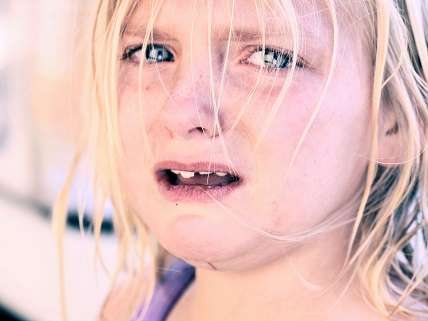'Zero Tolerance' School Policies Are Dumb, But Are They Racist?
Zero tolerance policies are bad, willy-nilly expulsions are bad, abjectly racial policies are bad-but federal education mandates are also (often) bad.


"Zero tolerance" school policies are rightly despised by libertarians, who see perfectly well-behaved children being harshly punished for harmless mistakes and inoffensive behavior—such as accidentally bringing a tackle box to school or folding a piece of paper into a vague gun-like shape.
Lawmakers in some states are smartly easing up on the codification of such policies, which force school districts to suspend and even expel students over trivial slights. Even the Obama administration has recommended reducing them.
Unfortunately, the Obama administration has also instructed schools to stop disciplining students at all if such punishments have a "disparate impact" on minority students. According to the U.S. Department of Justice Office of Civil Rights Division's "Dear Colleague" letter from earlier this year:
The administration of student discipline can result in unlawful discrimination based on race in two ways: first, if a student is subjected to different treatment based on the student's race, and second, if a policy is neutral on its face—meaning that the policy itself does not mention race—and is administered in an evenhanded manner but has a disparate impact, i.e., a disproportionate and unjustified effect on students of a particular race….
Schools also violate Federal law when they evenhandedly implement facially neutral policies and practices that, although not adopted with the intent to discriminate, nonetheless have an unjustified effect of discriminating against students on the basis of race.
The letter was poorly received by many education experts. For one thing, it's actually quite vague. Who determines whether a disparate impact is "justified"? Surely it will be difficult for teachers to maintain classroom order if punishing children for actual misbehavior could trigger a civil rights lawsuit under the "disparate impact" philosophy.
Nevertheless, Dr. Andre Perry wrote in The Washington Post yesterday that the letter has the right idea:
The real reason to stop expulsions is that, in the noble cause of closing the black-white achievement gap, schools are insidiously giving up on black children by expelling those who are considered not ready to learn. While zero-tolerance expulsions myopically help the school and the majority of students in it, they destroy the student—and, ultimately, the community, too.
Zero-tolerance policies have many allies. Parents are often the most ardent supporters. (If a kid injured your son or daughter, you'd want expulsion, too.) Moreover, teachers and principals will tell you that ridding the school of disruptive behaviors accelerates achievement for the overwhelming majority of its students. Educational leaders embrace no-tolerance policies on the ground that they provide the greatest good for the greatest number. …
That doesn't mean Obama's conceit is flawless. It is important for schools to be able to credibly threaten reprisals for the malcontents. Some behaviors do warrant out-of-school time: Weapons and schools don't mix. Fighting may require separating a child from the school to assess and calm a situation.
I get the sense that Perry is lumping many different policies together under the banner of zero tolerance. Schools should stop kicking kids out of class for dumb reasons—the quintessential example is the "chewed Pop-Tart into the shape of a gun" incident. All students should be safe from this kind of nonsense, regardless of their skin color.
It's a little more problematic for the federal government to broadly mandate that school districts move away from all punishments that have a "disparate impact" on racial minorities, however. For instance, suppose a school maintained a policy of suspending students who were late to class three times. If that policy impacted one racial group more than another, it could run into trouble with OCR, even if it was enforced "evenhandedly" against anyone who violated it.
Now, I happen to agree that school administrators use the weapons of suspension and expulsion all too readily. That reality is particularly harmful to minorities, as Perry points out. But broad federal recommendations against all rules that cause disparate impact seem likely to erode local autonomy and could provoke unintended consequences, such as toxic classroom environments.
In short, zero tolerance policies are bad, willy-nilly expulsions are bad, abjectly racial policies are bad—but federal education mandates are also (often) bad.


Show Comments (27)